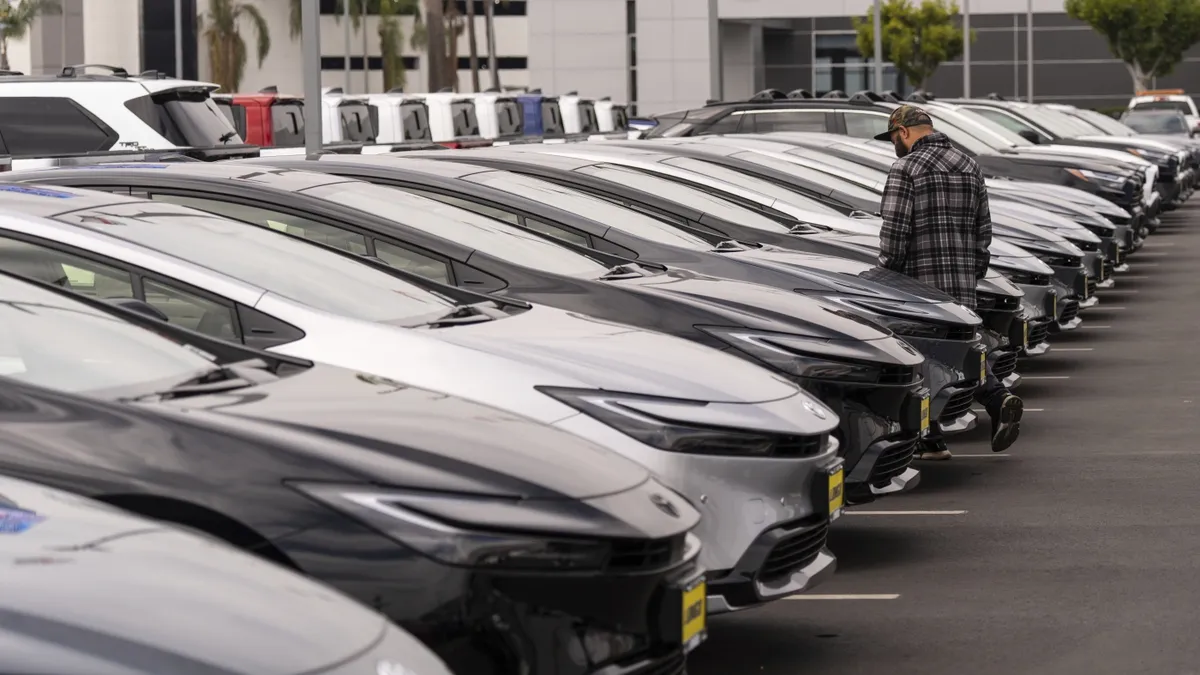
On Thursday, President Trump's 25% tariffs on imported cars officially took effect, igniting significant reactions within the automotive industry. Automakers have already begun implementing drastic changes, including layoffs, pauses in car shipments, and delays in price hikes. Industry analysts predict that these tariffs will lead to increased car prices for consumers, prompting many buyers to rush to dealerships in anticipation of higher costs ahead.
Starting on May 3, the tariffs will extend to imported car parts, such as engines and transmissions. This expansion will likely increase the costs associated with assembling cars in the U.S. The Trump administration has cited various justifications for these tariffs, with the primary objective being to bolster U.S. manufacturing. However, White House officials have claimed that foreign companies will absorb the costs of these tariffs. Contradicting this assertion, a study by the National Bureau of Economic Research revealed that during Trump’s first term, the burden of tariff costs predominantly fell on U.S. companies and consumers.
In light of the new tariffs, automakers are adopting different strategies, but a prevailing sense of uncertainty characterizes their responses. For instance, Stellantis, the company behind iconic brands like Jeep, Dodge, RAM trucks, and Chrysler, announced a temporary halt in production at several of its assembly plants located in Mexico and Canada. This decision has led to the temporary layoff of 900 workers at Stellantis factories in Michigan and Indiana. Antonio Filosa, Stellantis' North American Chief Operating Officer, emphasized the necessity of these immediate layoffs and production pauses to navigate the current market dynamics.
Meanwhile, luxury car manufacturer Jaguar Land Rover (JLR) has paused shipments of its British-made cars to the U.S. this month. JLR stated that the U.S. is a crucial market for its luxury brands, and they are assessing how to adapt to the new trading conditions with their business partners. This pause will allow the company to devise mid- to long-term strategies in response to the tariffs. Notably, JLR has provided electric Jaguar SUVs for Waymo, the autonomous ride-hailing service owned by Google's parent company. It remains uncertain how the tariffs will affect Waymo’s operations.
With the specter of rising prices looming, consumers are taking proactive steps to secure deals before the tariffs hit. South Korean automaker Hyundai reported record sales last month, marking its second-highest sales month in the company's history. Interestingly, Hyundai has been ramping up production in the U.S., not as a direct response to the tariffs but due to favorable timing, which may help mitigate some of the import tax impacts. Similarly, Toyota experienced a surge in sales at the end of March, attributed to increased customer traffic at dealerships.
A survey conducted by market research firm AutoPacific revealed that 18% of new vehicle shoppers in the U.S. intended to expedite their purchases to avoid the anticipated price hikes caused by the tariffs.
Before the tariffs took effect, Ferrari announced that most of its models would see price increases of up to 10% due to the new policies. However, some models, including the Roma, which has a price tag nearing a quarter million dollars, will remain unaffected. Ferrari committed to covering the tariff costs for certain models, including the Roma, 296, and SF90. Meanwhile, BMW stated it would absorb the increased costs from tariffs on vehicles produced in Mexico until at least May.
Other automakers are providing customers with short-term relief from price hikes. Hyundai reassured buyers that it would maintain current prices for its model lineup for the next two months. Similarly, Toyota, which sold over 2 million vehicles in the U.S. last year, indicated no immediate plans to raise prices.
Despite these temporary measures, market research firm Cox Automotive predicts that vehicles impacted by the tariffs could see price increases of 10-15%. Cars not subjected to the full 25% tariff may still experience price jumps of around 5%. Some manufacturers have responded by reducing prices. Ford, which produces a significant portion of its vehicles domestically, is offering employee pricing as part of its promotional campaign, “From America, For America.” Stellantis has reportedly followed suit, while Nissan has cut prices on popular models like the Rogue and Pathfinder to assist buyers navigating the challenging car-buying landscape.
The automotive industry is bracing for the impact of the upcoming parts tariffs, with analysts like Mel Yu noting that imported car parts constitute 40-80% of U.S.-made vehicles and account for 20-40% of the retail price. This suggests that regardless of where cars are manufactured, prices are expected to rise. The influence of the parts tariffs will likely be felt quickly, further complicating the landscape for automakers and consumers alike.